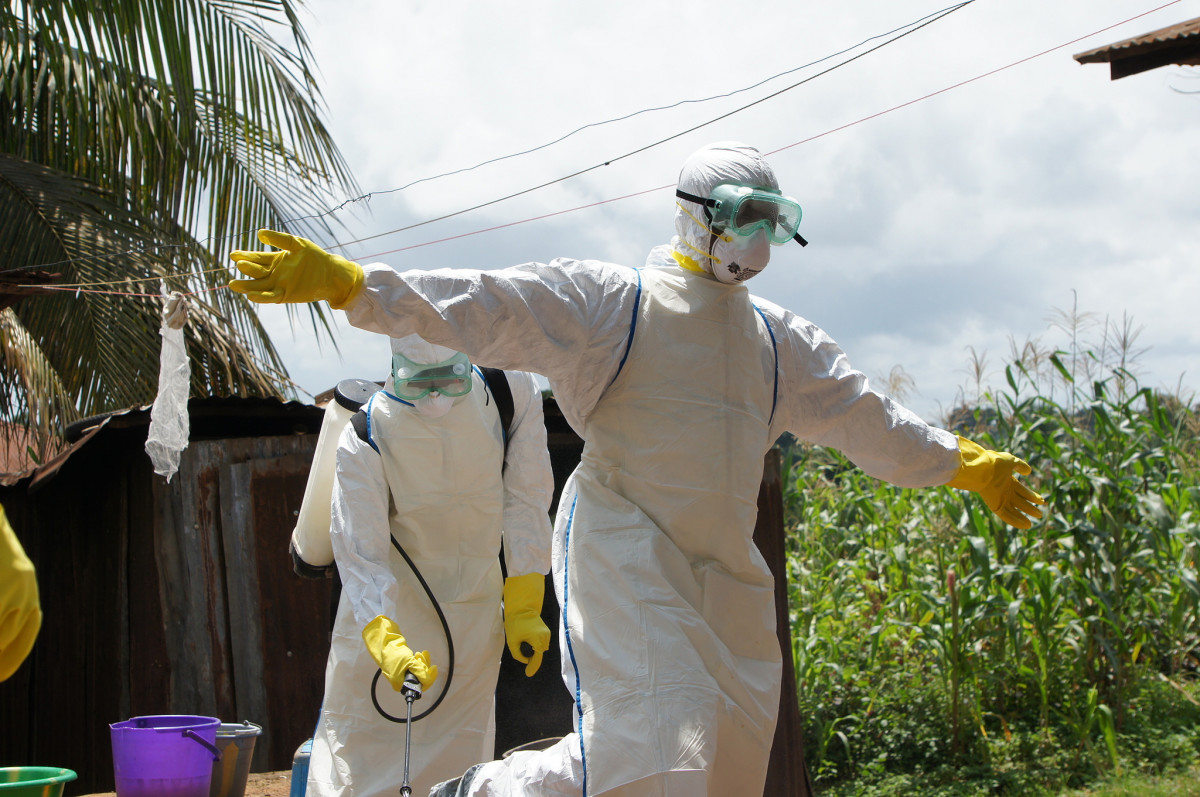Maryland continues to play a big role in the search for an elusive Ebola vaccine.
Last week, a researcher from the Baltimore-based University of Maryland School of Medicine (UMSOM) began conducting human trials of a potential vaccine against the Ebola virus in West Africa. Meanwhile, testing on a separate vaccine developed in Canada began at a U.S. government hospital in Silver Spring this week.
Myron M. Levine began the Mali-based trials last week, opening the third phase of a fast-tracked effort to get the first-ever vaccine against the deadly disease in use. The trials come amid increasing urgency to combat the raging Ebola epidemic. This week, the World Health Organization warned that case numbers could soar to as many as 10,000 per week, and the disease is beginning to appear in the U.S. and European countries.
Read our Q&A with Levine from last month
Levine is co-leading the trials with Dr. Samba Sow, a Malian health official who serves as an adjunct professor at UMSOM, to lead the trials. The vaccine, developed by GlaxoSmithKline and the National Institute of Allergy and Infectious Diseases, would not be able to manufactured fast enough to be distributed to entire populations. But a successful vaccine would be a critical public health tool in a countries where the doctors and nurses treating the disease remain at great risk of contracting it, officials said.
The first trial doses were given to Malian healthcare workers. In an interview with Technical.ly Baltimore last month, Levine said health workers in the West African countries where Ebola has spread fastest would be the first to receive any vaccine.
“First and foremost is healthcare workers because, whoever gets sick, they need a lot of intensive care with Ebola,” Levine said. “And if you don’t have doctors and nurses in hospitals and health centers because they’re afraid of the disease, that’s a crisis.”
In all, the vaccine will be tested on 40 people. Its progression to testing in Mali indicates that initial tests carried out in London were successful. If the phase of the trial is successful, it would still be 6-8 months before the trial is successful.
Human testing is also taking place stateside. In Silver Spring, a vaccine developed by the Public Health Agency of Canada is being tested at the Walter Reed Army Institute of Research.
As the Ebola epidemic ramped up in August, the Canadian government donated 800-1,000 vials of the developmental vaccine to the World Health Organization. About 20 of those doses are being tested in Maryland. The results of the trial are expected to be available in December.
Join the conversation!
Find news, events, jobs and people who share your interests on Technical.ly's open community Slack

Baltimore daily roundup: Mayoral candidates talk tech and biz; a guide to greentech vocabulary; a Dutch delegation's visit

Baltimore daily roundup: Medtech made in Baltimore; Sen. Sanders visits Morgan State; Humane Ai review debate

Baltimore daily roundup: An HBCU innovation champion's journey; Sen. Sanders visits Morgan State; Humane Ai review debate


